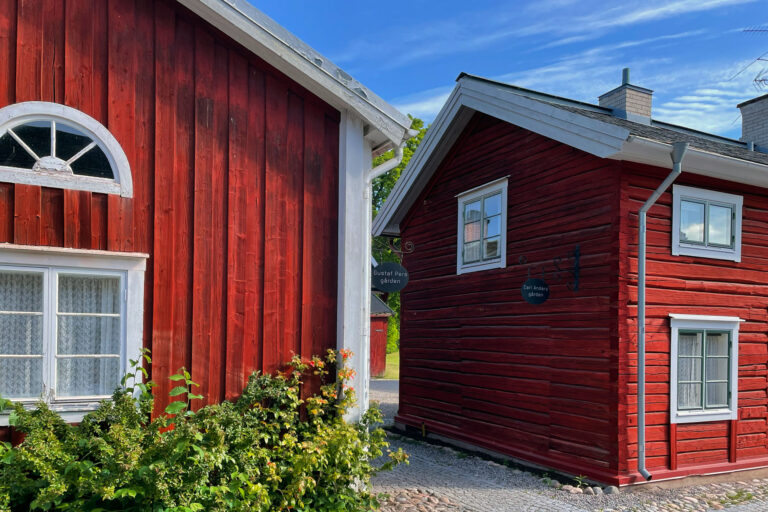The Nordics
Trend watch: why the ‘haute dog’ is the Nordics’ next big bite
The Nordics • Insider guides • Trend watch: why the ‘haute dog’ is the Nordics’ next big bite
The ‘haute dog’ trend taking over the Nordics
The humble hot dog has taken on a new identity in the Nordics, shedding its fast-food past for a more elevated, experimental role on menus stretching from Norway to Finland. Known locally as the ‘haute dog’, this reinvention plays with artisanal sausages, unexpected toppings and house-made sauces, turning a simple street-food staple into a statement menu item. If you’re curious about this unique dish taking over the Nordics, read on as we share where to find it and what makes it so irresistible. Discover more about what the ‘haute dog’ really is and why it has become a trending fixture in Nordic food culture.
Top photography courtesy of Riche Fenix
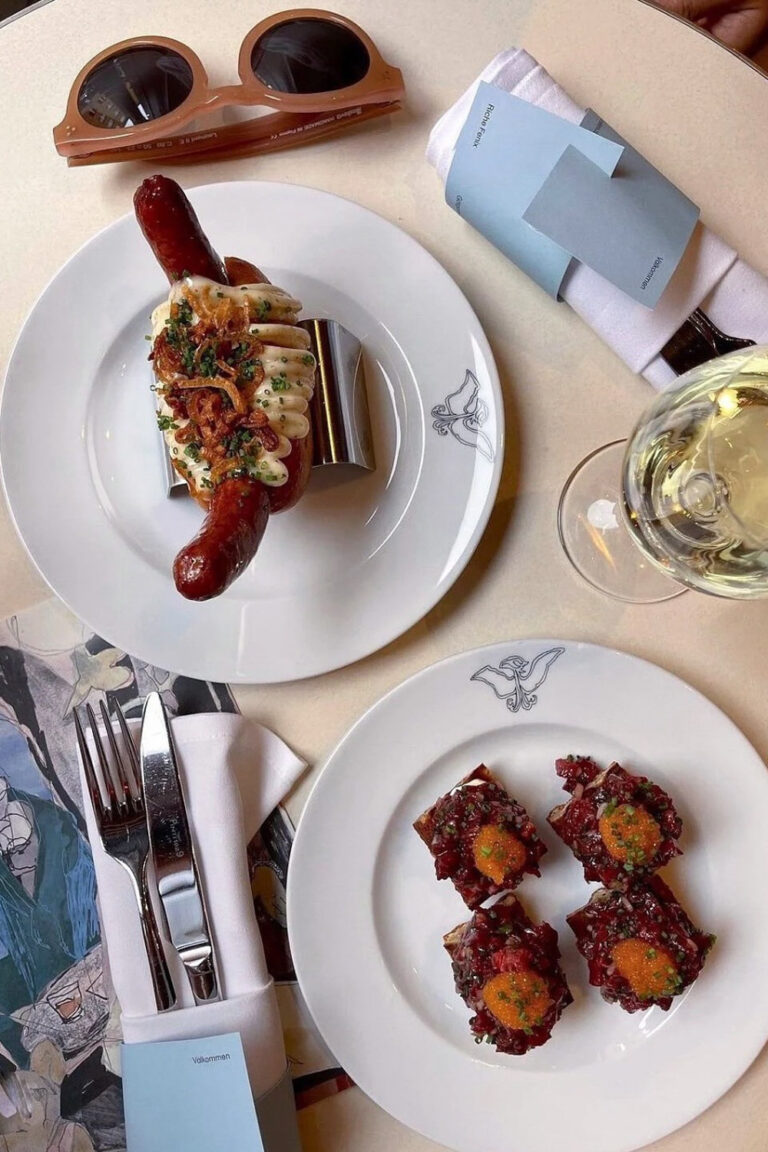
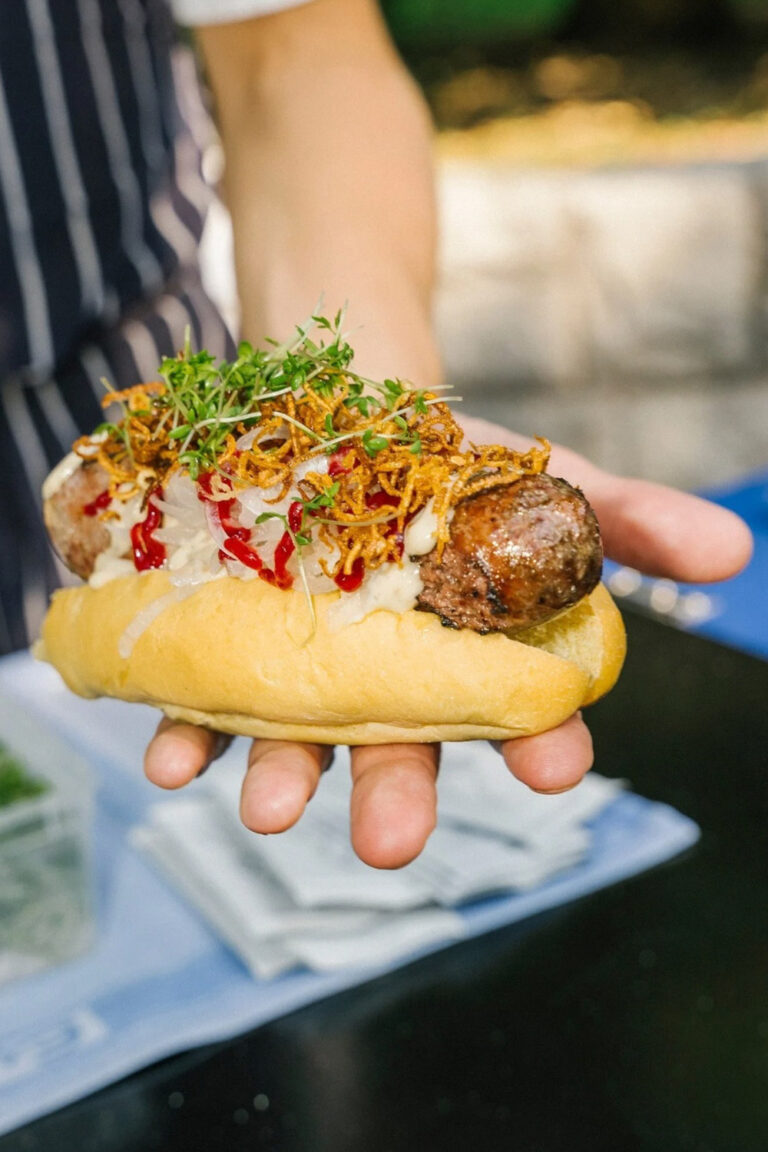
What is a ‘haute dog’ exactly?
Think of a ‘haute dog’ as a high-end hot dog, a playful nod to haute cuisine. It starts with a quality sausage and bun (often baked in‑house) but goes far beyond ketchup and mustard. Chefs pile on upscale or regional toppings, from smoked butters and fermented krauts to cheeses and fruit relishes. You can expect sausages topped with unique combinations like lobster meat or Thai‑inspired spices and a tangy pineapple salsa.
Photography courtesy of Riche Fenix
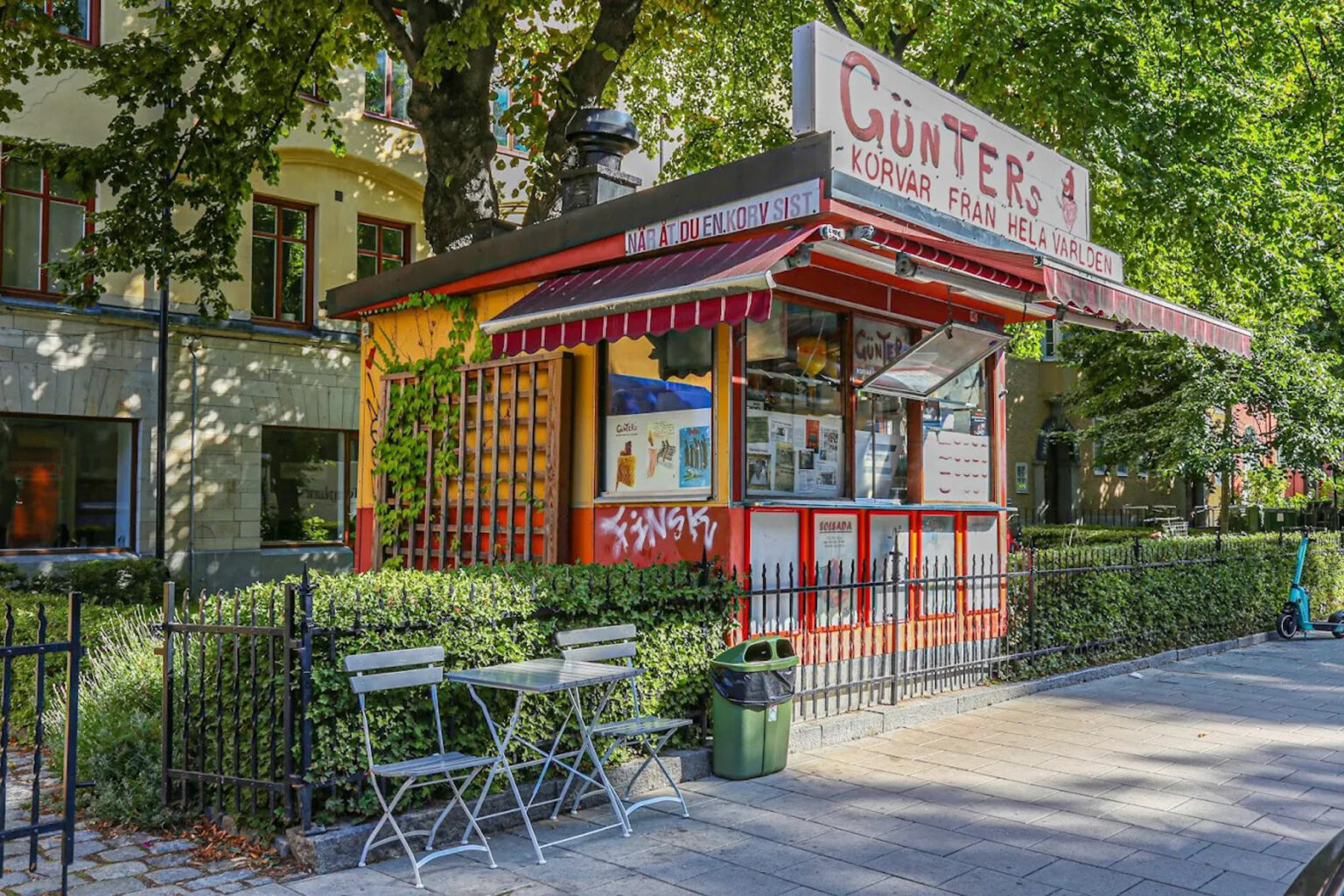
How did the humble hot dog become a Nordic icon?
Decades ago, the American-style hot dog arrived in Scandinavia and quickly took root. After World War II, American fast-food culture swept through Norway and beyond. Pølse med brød (sausage with bread) hit Norway in the 1950s and was an instant hit. The once‑foreign snack was “Norwegianized” (for example, by wrapping the sausage in lompe, a potato flatbread).
The Nordic hot dog grew out of these roots by evolving to fit local tastes. Vendors began using regional meats (beef, pork and even reindeer) and baking techniques (Danish pølser are traditionally beechwood-smoked with spices like nutmeg, allspice and cardamom).
They also invented new serving styles. In Norway, the sausage is commonly rolled in a potato-based lompe instead of a bun. Across the region, they also experiment with different sausages ranging from pork, chicken, plant-based and even cheese- or bacon-wrapped sausages.
Photography courtesy of Günters Korvar
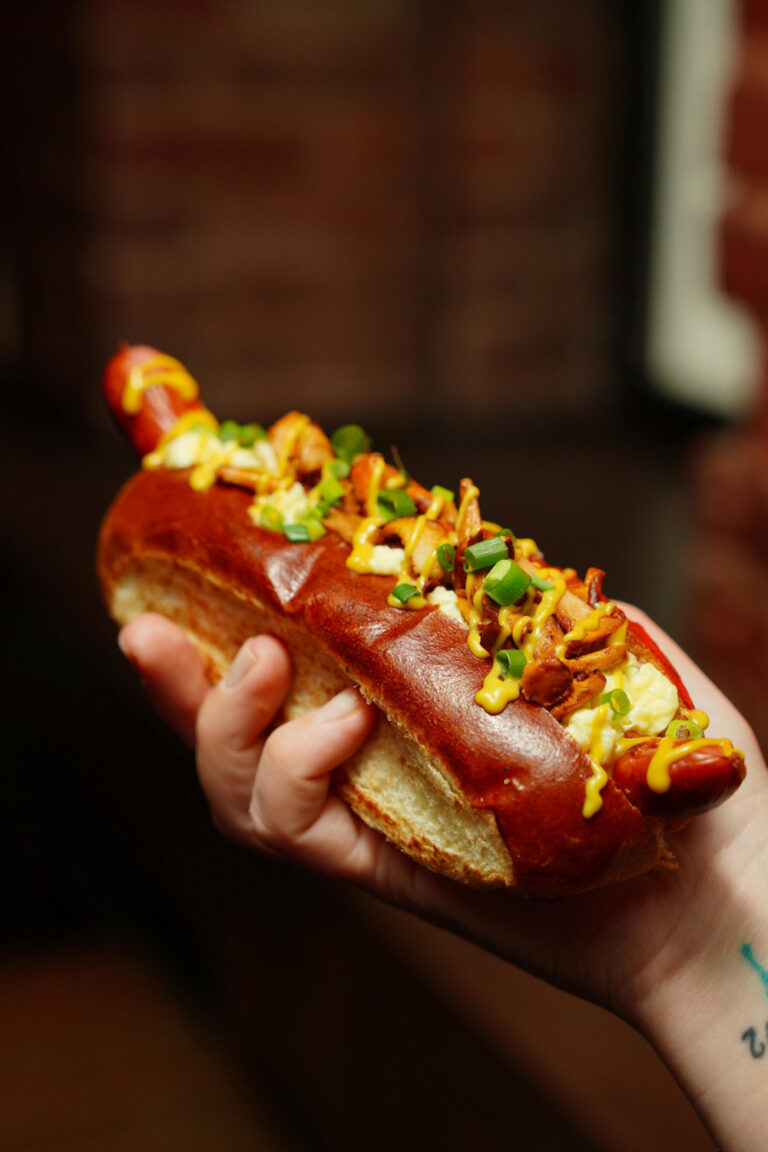
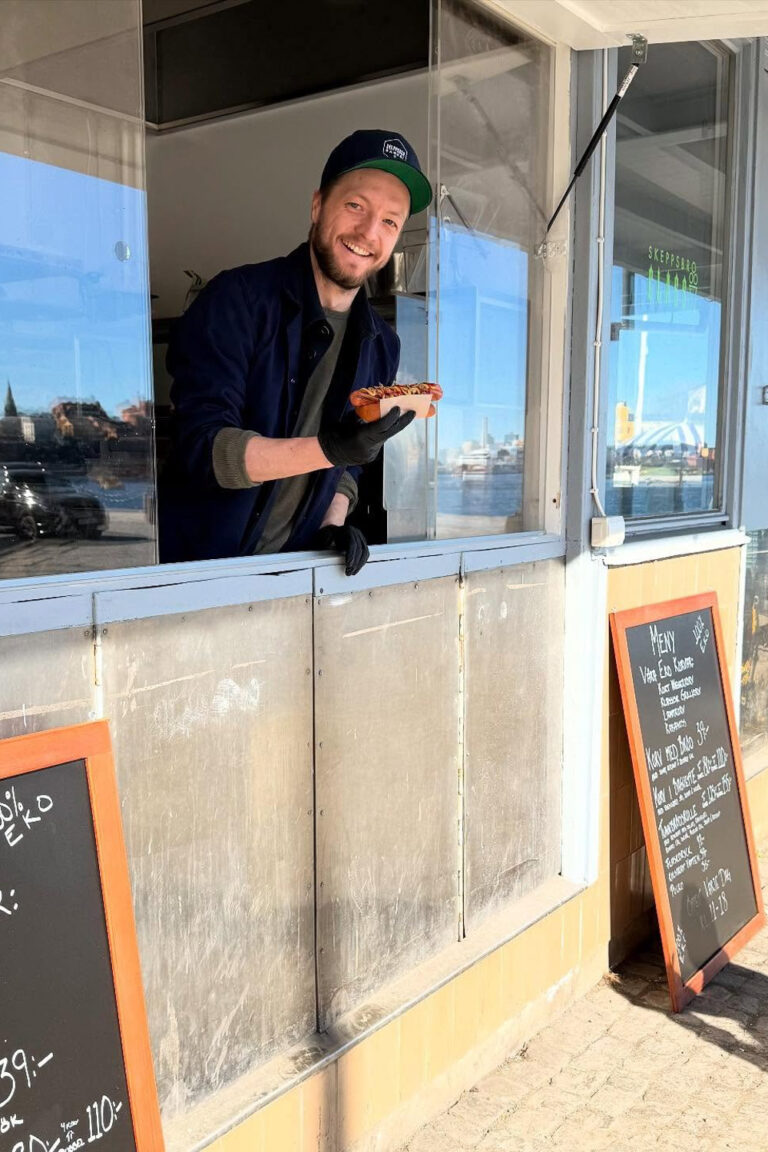
What are some signature regional toppings or variations?
Denmark
Denmark’s signature street-dog is the rødpølse, a bright red, thin pork sausage. It is beechwood-smoked and seasoned with warming spices (nutmeg, allspice and cardamom). Street vendors typically serve it on a platter with condiments like tangy mayo-based remoulade, mustard, ketchup, chopped pickles, plus chopped raw onions and crispy fried onions.
Today, Denmark’s new wave of food trucks and hot-dog stands are taking that same rødpølse DNA and transforms it into ‘haute dogs’. Think sourdough buns, house-fermented toppings, and small-batch sausages made from heritage pork.
Norway
In Norway, the classic hot dog is called pølse i lompe. Norwegians load it with local toppings like creamy potato salad or shrimp salad and sometimes a spoonful of tart lingonberry jam. Plus plenty of crispy fried onions, chopped raw onions, ketchup and mustard. Younger chefs and food entrepreneurs are swapping the industrial sausages for reindeer or lamb versions, pairing them with foraged condiments and homemade sauces. In Oslo, seasonal food stalls might offer pølse topped with cloudberry compote or smoked cheese. It’s still handheld and familiar, but the ingredients are pure Nordic terroir.
Sweden
In Sweden, particularly around Gothenburg, the Halv Special (hot dog with mashed potato) remains a beloved late-night classic, as does the Tunnbrödsrulle wrapped in soft flatbread with shrimp salad and mashed potato. What’s changing is how chefs are refining the textures and flavours. Upscale versions feature truffled mash, pickled fennel, or homemade prawn salad made from fresh North Sea shrimp. Even Pucko, that cheeky chocolate milk sidekick, is making a comeback in gourmet form – reinterpreted as a dark chocolate shake or ice cream pairing.
Photography courtesy of Skeppsbro

Why is the trend heating up now?
Several factors are driving the Nordic ‘haute dog’ boom. There’s a global revival of interest in elevated comfort food and Nordic chefs are famous for reworking traditional staples with modern twists.
First, consumer expectations are shifting. People increasingly demand local, high-quality ingredients, even in fast or casual food. This has led hot dog vendors to focus on heritage-breed meats, free-range or organic options, artisanal buns and house-made condiments. Vegetarian and vegan sausages are also becoming common, reflecting the growing interest in plant-based eating.
Street-food culture has also evolved. Food halls in Copenhagen, Oslo and Stockholm have become playgrounds for experimentation. At John’s Hotdog Deli in Copenhagen, the menu changes with the season, topping sausages with kimchi or truffle mayo. In Stockholm, Korvkiosk chefs layer pickled chanterelles or shaved Västerbotten cheese over reindeer sausages. In Oslo, pop-up vendors fold in ingredients from the fjord like shrimp mayo, smoked salt, or seaweed crisps.
There’s also a nostalgia-meets-innovation factor. Many diners have a sentimental attachment to traditional hot dogs, but they’re drawn to novelty and elevated flavours. The ‘haute dog’ captures this perfectly – it’s familiar, yet exciting.
Finally, the trend aligns with core Nordic culinary principles. Scandinavia places a strong emphasis on seasonality, terroir and minimalism. Even fast food gets the same attention to provenance and craftsmanship as fine dining. Chefs experiment with local cheeses, smoked meats, foraged mushrooms and seasonal sauces, turning an everyday snack into a gourmet experience.
Photography courtesy of Dan Lepp and Nobel Prize Outreach
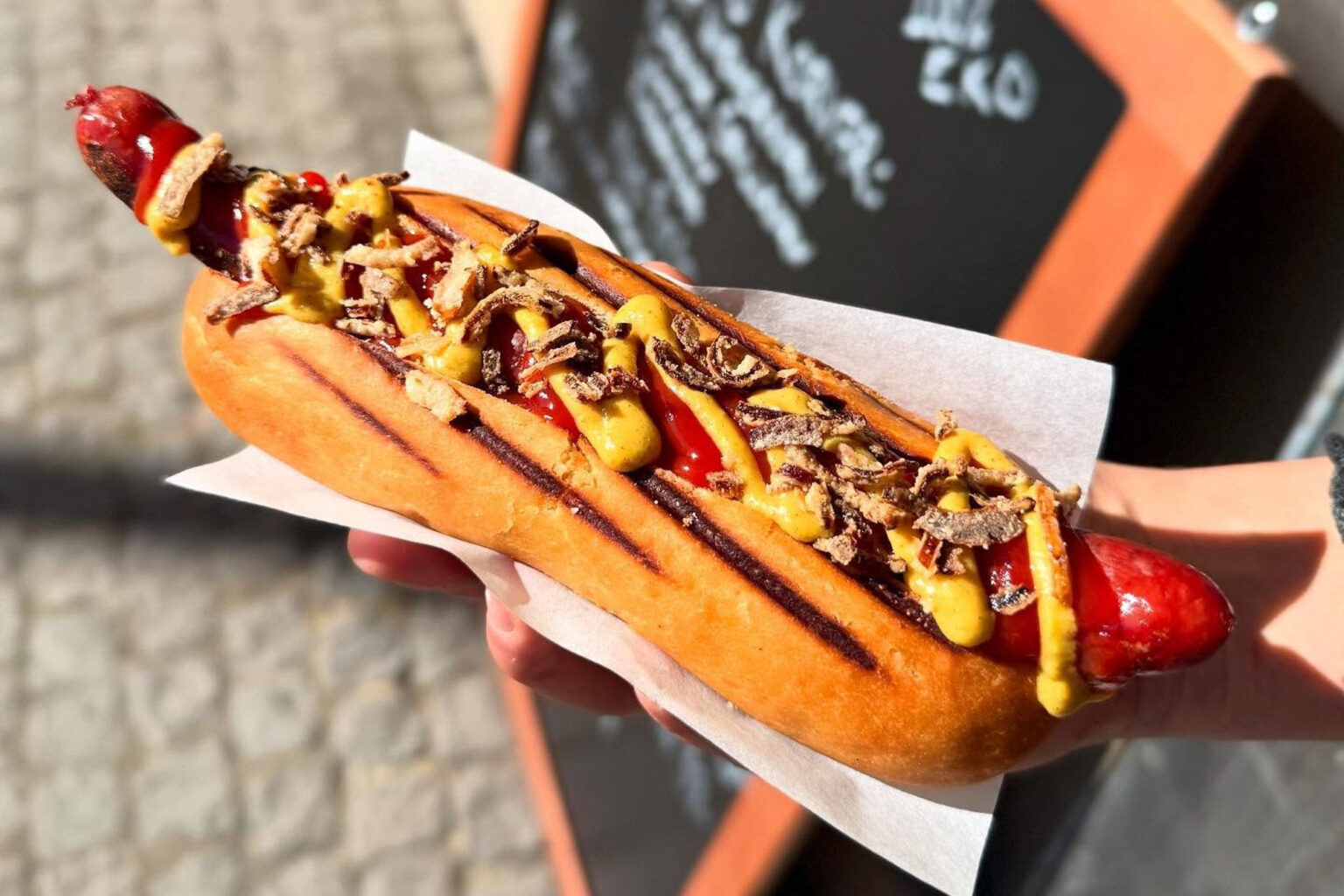
Where to try the best haute dogs in the Nordics?
Riche Fenix
This trendy Södermalm bar (a younger offshoot of the famous Riche) has a colourful, art‑filled interior and a lively vibe. The kitchen focuses on handheld treats, from arancini balls to a merguez-spiced hot dog. The ‘haute dog’ here is served on a toasted roll and features a North African merguez sausage with fiery sauce, reflecting Riche Fenix’s blend of old-school brasserie style and innovative, international flavours.
Read the full article on Riche Fenix.
Skeppsbro Korv
Located next to a bakery and ice-cream shop in historic Gamla Stan, Skeppsbro Korv is a classic Swedish korvkiosk with a modern ethos. Everything is organic. The pork sausages are sourced from local Stockholm farms and the soft white bun is baked on-site. The setup is simple and unpretentious (outdoor counter and picnic tables), but the emphasis on quality ingredients makes even a plain hot dog feel gourmet.
Lennart & Bror
A combination butcher shop and bistro on Birger Jarlsgatan, Lennart & Bror has a rugged Scandinavian charm. Behind the counter, they sell choice cuts of meat and in the restaurant, they grill them. Their classic hot dog is a popular choice. A house-made pork sausage in a bun with mustard, ketchup and pickles. It may sound humble, but given the quality of their meat, it’s treated like a signature dish. Lean, well‑spiced sausage with a perfectly toasted bun and a balanced selection of toppings.
Günters Korvar
Often cited as Stockholm’s best hot dog spot, Günters Korvar is a tiny takeaway kiosk in Vasastan with a cult following. Opened in the 1990s, it still looks like a shed, but inside they grill an extraordinary array of sausages. You can get everything from paprika‑flavoured to a double-kabanos (two thin sausages), served in a hollowed baguette with generous housemade sauces and sauerkraut. Their philosophy is simple – sausage is king and every bite is full of savoury, smoky flavour.
Photography courtesy of Skeppsbro
Share this
Stay in the know
Sign up for the latest hotspot news from the Nordics.


